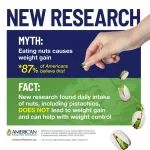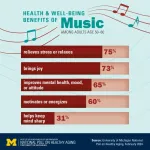(Press-News.org) Highlights:
Alterations in gut microbiota may influence immune system changes during pregnancy.
However, the connection isn’t well known.
Researchers in China analyzed gut microbiota, metabolites and cytokines in healthy pregnant and non-pregnant young women.
The new study identifies numerous pathways by which the gut microbiome may change the immune system.
Washington, D.C.—During pregnancy, a woman’s immune system changes dramatically but researchers don’t yet understand all the underlying mechanisms. A new study shows how the gut microbiota may play a role.
In a paper published this week in mSystems, researchers in China report that during pregnancy, changes in levels of cytokines—immune system proteins important in inflammation—may be linked to specific alterations in the mother’s gut microbiome and in plasma and fecal metabolites.
“To the best of our knowledge, these associations were first explored in our study,” said first author Ting Huang, M.D., from the First Affiliated Hospital of Jinan University in Guangzhou, China.
Pregnancy brings a raft of changes, including fluctuations in hormones, changes to a woman’s body structure, and variations in the immune system. Previous studies have identified changes to the gut microbiome that can occur during pregnancy; they have also suggested that those changes may influence physiological processes in the mother through metabolites. Disturbances in the microbiota, for example, have been connected to the promotion of preeclampsia, a dangerous pregnancy complication characterized by high blood pressure. However, it remains unclear how alterations in the gut microbiota during pregnancy affect maternal immunity.
To investigate these connections, the researchers at the First Affiliated Hospital of Jinan University compared the gut microbiota, metabolite profiles and immune system status of 30 healthy pregnant women to 15 healthy women who weren’t pregnant. All the women in the study were between 18 and 34 years old. Fecal and blood samples were collected from the pregnant women during or after the 37th week of pregnancy, and samples from non-pregnant women were collected on the 14th day of the menstrual cycle.
Analyses of the fecal samples showed that Firmicutes was the most dominant phylum of bacteria in both groups of women. However, Bacteroidota bacteria accounted for a smaller relative share of the microbial population in pregnant women than in non-pregnant women. Pregnant women also showed a higher relative abundance of both Actinobacteriota and Proteobacteria, compared to non-pregnant women.
The researchers similarly found a distinct difference in the cytokine levels in the 2 groups. Pregnant women had lower levels of cytokines that promote inflammation, and they showed higher levels of cytokines that act against inflammation. These results suggest that the immune system may be suppressed during pregnancy, the authors noted.
The researchers then identified hundreds of metabolites found in the plasma and fecal samples. They found that each group—pregnant and non-pregnant women—had its own distinct collection of metabolites, or metabolome. Notably, many of those metabolites were connected to bile acid secretion and metabolism, and bile acids have previously been tied to inflammation. In further analyses, they found that some enriched metabolites in pregnant women were associated with lower levels of pro-inflammatory cytokines. Similarly, some of the depleted metabolites are associated with increases in pro-inflammatory cytokines.
Finally, the group identified a total of 46 connections among microbes, metabolites and cytokines. They found that some microbes enriched in pregnant women, for example, may inhibit an immune response by inhibiting pro-inflammatory metabolites. Overall, Huang said, the results support the idea that gut microbes interact with host metabolites to change cytokine levels in the blood.
However, Huang cautioned that the study doesn’t establish causation. In addition, the small sample size may amplify errors arising from individual differences, and the design of the study doesn’t account for cofounding factors, like diet. More clinical trials are needed, the researchers said, to confirm and better elucidate the connections.
###
The American Society for Microbiology is one of the largest professional societies dedicated to the life sciences and is composed of 36,000 scientists and health practitioners. ASM's mission is to promote and advance the microbial sciences.
ASM advances the microbial sciences through conferences, publications, certifications, educational opportunities and advocacy efforts. It enhances laboratory capacity around the globe through training and resources. It provides a network for scientists in academia, industry and clinical settings. Additionally, ASM promotes a deeper understanding of the microbial sciences to diverse audiences.
END
Highlights:
Wastewater, even when treated, can deliver antimicrobial resistance genes to rivers.
Further research is needed on if rivers function as a protective barrier.
Researchers subjected biofilms from pristine rivers to wastewater.
Antibiotic resistant bacteria from wastewater successfully integrated at first, but in the warmest water were edged out by naturally occurring microbes.
The study suggests that temperature can influence the microbial competition in rivers.
Washington, D.C.—Antimicrobial resistant genes (ARGs) from wastewater can end up in natural biofilms in rivers, but they may not stick around very long. This week in mSphere, ...
Accelerating Innovation in Medicine - Health Initiative (AIM-HI) is proud to celebrate a significant milestone in the journey of one of its esteemed portfolio companies, Yiviva. A clinical-stage platform biotechnology company, Yiviva has entered into a Memorandum of Understanding (MOU) with AstraZeneca China, a multinational biopharmaceutical leader.
AIM-HI exists to support bold new ideas in treating and preventing cancer. So when Yale Professor Yung-Chi Cheng approached us years ago about mining ancient Chinese herbs for modern therapies, we took notice. Other investors ...
DALLAS, Feb. 7, 2024 — Research teams from Northwestern University Feinberg School of Medicine, New York University and Duke University will work together to assess the accuracy of the American Heart Association’s new PREVENTTM risk calculator with funding from the Association’s De-biasing Clinical Care Algorithms project.
The American Heart Association, celebrating 100 years of service in 2024, is the single largest non-government supporter of heart and brain health research in the U.S. The de-biasing project is funded by a grant from the Doris Duke Foundation to study the role of race and ethnicity in clinical equations and their ...
Geographic sorting along ideological lines is on the rise. Counties and regions of the United States differ in political ideology. But do they differ in personality as well? Further, are people who ‘fit’ their communities healthier, happier, or more highly achieving than those who do not?
In the context of these growing divisions and to address this question, a study by Florida Atlantic University’s Kevin Lanning, Ph.D., senior author and a professor of psychology and data science in the Harriet L. Wilkes Honors College on FAU’s John D. MacArthur Campus in Jupiter, and ...
One of the most important components of satellites that enable telecommunication is the waveguide, which is a metal tube for guiding radio waves. It is also one of the heaviest payloads satellites carry into orbit. As with all space technology, reducing weight means reducing the amount of expensive and greenhouse gas-producing fuel it takes to launch a rocket, or increasing the number of devices carried by the same rocket to space. Researchers from Drexel University and the University of British Columbia are trying to lighten the load by creating and testing a waveguide made ...
More than half of Americans do not currently meet the daily recommendation of 5–7 ounce equivalents^ of nuts and seeds per week.1
One possible contributor to such low intakes of tree nuts could be a fear that the calories or fat composition of tree nuts leads to weight gain.
For example, past studies suggest that up to 87% of Americans think eating nuts can lead to weight gain due to their dietary fat content2 despite scientists confirming that eating nuts every day, including pistachios,3 can be an achievable and simple strategy to ...
A more accurate way of identifying underground nuclear tests, including those conducted in secret, has been developed by researchers at The Australian National University (ANU).
The new method could help international observers better identify tests carried out by countries or actors known to possess nuclear weapons, as well as providing new information about those suspected of being armed.
According to lead author Dr Mark Hoggard, in the aftermath of the Cuban Missile Crisis and Partial Test Ban Treaty in the 1960s, testing of nuclear ...
DALLAS, Feb. 6, 2024 — Five promising scientific researchers will advance their work to better understand and treat the most common birth defect in the U.S., congenital heart defects (CHDs), thanks to joint financial support from the American Heart Association and The Children’s Heart Foundation's Congenital Heart Defect Research Awards program.
To date, the American Heart Association, celebrating 100 years of lifesaving service and devoted to a world of healthier lives for all, and The Children’s Heart Foundation, dedicated to funding congenital heart defect research, have ...
HOUSTON – (Feb. 7, 2024) – Artificial intelligence is good at many tasks involving data in the form of text, audio and images, including face recognition and text summarization.
“AI is an amazing tool and has been extended over less conventional domains, such as climate data defined on spheres (representing the Earth) and traffic data defined on road networks,” said Santiago Segarra, assistant professor of electrical and computer engineering and statistics.
With his five-year, $599,138 CAREER Award from the National Science Foundation, Segarra intends to study the use of graphs to represent these ...
Whether it’s singing in a choir, playing the living room piano, joining in hymns at church, or just whistling along with the radio, a new poll finds that nearly all older adults say music brings them far more than just entertainment.
Three-quarters of people age 50 to 80 say music helps them relieve stress or relax and 65% say it helps their mental health or mood, according to the new results from the University of Michigan National Poll on Healthy Aging. Meanwhile, 60% say they get energized or motivated ...





